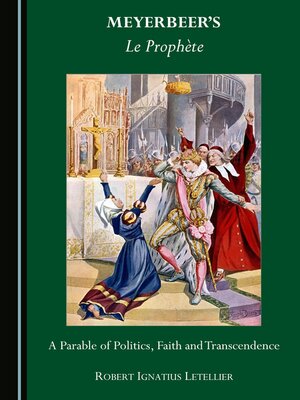Meyerbeer's Le Prophète
ebook ∣ A Parable of Politics, Faith and Transcendence
By Robert Ignatius Letellier

Sign up to save your library
With an OverDrive account, you can save your favorite libraries for at-a-glance information about availability. Find out more about OverDrive accounts.
Find this title in Libby, the library reading app by OverDrive.



Search for a digital library with this title
Title found at these libraries:
| Loading... |
For a period of close to half a century, French grand opéra, as exemplified by the works of Giacomo Meyerbeer and his school, was the preferred form of music for the theatre in most of the civilized world. During the July Monarchy, French grand operas, with their plots drawn from historical events, tended to be received as metaphors for current political themes. Meyerbee's Le Prophète illustrates the complex, contested nature of political meaning during this period. This opera was set in the context of the emerging liberal historiography pioneered by Jules Michelet, and reactions to it illustrate the manner in which audiences and critics constructed 'meanings' with reference to their personal and collective experience and memories, with grand opera occupying a central role at that time. Le Prophète was once one of the most famous of operas, performed over 500 times at the Paris Opéra, and given throughout the civilized world, in the days when opera was ever-present in society. The plot has been called absurd, based as it is on the history of the Anabaptists in Münster (1534-35). However, history is far stranger than fiction, and Eugene Scribe's libretto provides a modification of the garish facts in the interests of a highly symbolic scenario based on a tragic Reformation episode, and exploring the implication of the role of religion, power and politics in the fate of humanity. The music is powerful, gripping, and torrential in its flow. Each act is beautifully structured, each set piece crafted to perfection, dominated by an overwhelming sound world of instrumental colours and disturbing harmony. The ballet plays a vital function as a countersign to the human deeds of darkness and despair that characterize the action. The Coronation Scene is fascinating, and overwhelming in its impact, one of opera's greatest moments.This study examines the origins and creation of the opera, its dramaturgy and musical style, the history of its astonishing reception around the world until the 1930s. One of the special features of this book is the collection of iconography associated with the work and its interpretation by many of the greatest singers of the Golden Age of opera.






